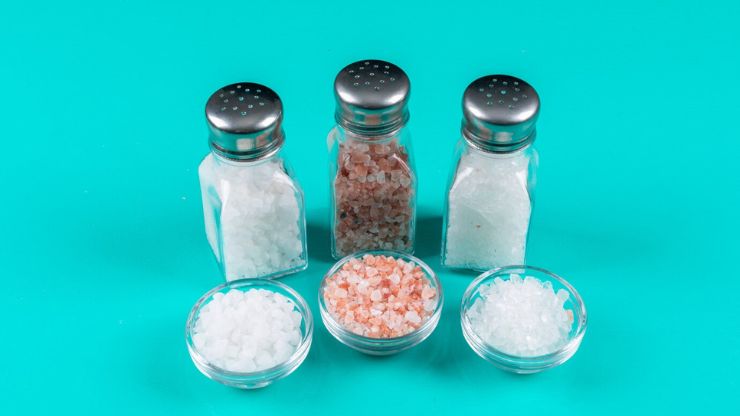Welcome to our comprehensive guide on the 10 best salts for fermenting foods! Whether you’re a seasoned fermenter or just starting out, the right salt can make all the difference in achieving that perfect balance of flavor and preservation. In this blog, we’ll explore the top salts recommended by experts, ensuring your fermentation projects are a delicious success.
10 Best Salts for Fermenting Foods
Choosing the right salt is a crucial aspect of successful fermenting, influencing both flavor and the fermentation process. Here, we delve into the 10 best salts for fermenting foods, providing detailed insights into their unique characteristics.
Himalayan Pink Salt
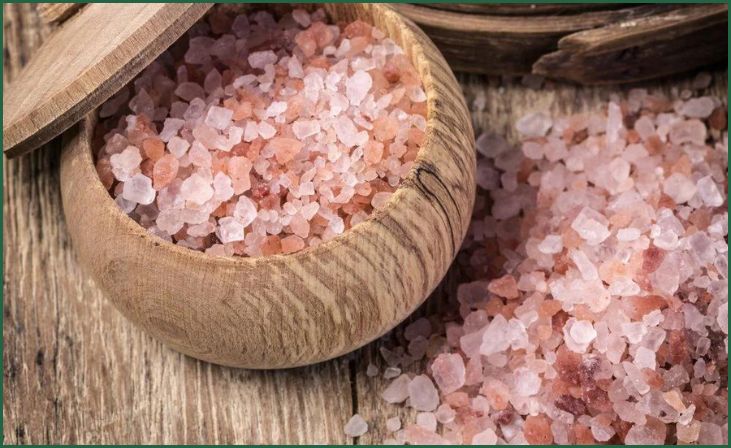
Derived from ancient sea salt deposits nestled in the Himalayan mountains, Himalayan pink salt stands as a testament to natural purity and mineral richness. Boasting an impressive repertoire of over 84 trace minerals, this salt not only elevates the flavor profile of your ferments but also serves as a nurturing ground for beneficial bacteria. The distinctive pink hue of Himalayan salt adds a visually captivating touch to your creations, turning each ferment into a work of art for both the palate and the eyes. This is the first salt on our list of 10 best Salts for Fermenting Foods.
Celtic Sea Salt
Hailing from the untarnished coastal regions of Brittany, France, Celtic sea salt is a natural and unrefined gem in the world of fermentation. Infused with a spectrum of minerals, this salt effortlessly retains moisture, creating an optimal environment for consistent fermentation. Its coarse crystals dissolve gradually, leaving behind a mild, briny taste that enhances the essence of your ferments. Consider Celtic sea salt your ally in crafting ferments with a touch of coastal elegance. This is the second salt on our list of 10 best Salts for Fermenting Foods.
Also Read: Fermenting Weight
Kosher Salt
Renowned for its pure and additive-free composition, kosher salt has gained popularity in the fermenting realm. Widely used in koshering meats, this salt features larger crystals, providing you with precise control over the salinity of your brine. The mild flavor of kosher salt ensures that the natural tastes of your ingredients shine through, making it a versatile and reliable choice for fermentation enthusiasts. This is the third salt on our list of 10 best Salts for Fermenting Foods.
Redmond Real Salt
Mined from ancient sea beds in Utah, Redmond Real Salt is a testament to the untouched purity of nature. Unrefined and enriched with trace minerals, its coarse texture makes it ideal for dry salting and pickling. The unique blend of minerals contributes to a nuanced flavor profile, elevating the complexity of fermented foods. Redmond Real Salt invites you to explore the depth of flavor in your ferments, making each creation a culinary masterpiece.
Fleur de Sel
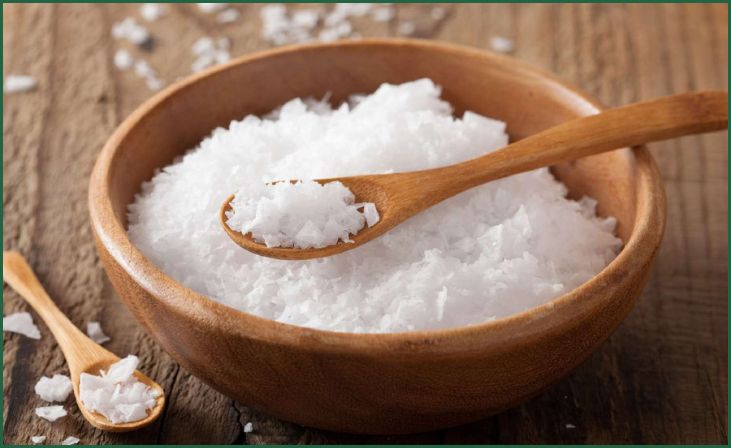
Harvested from the uppermost layer of salt pans in Brittany, Fleur de Sel is revered for its delicate crystals and distinctive taste. The light, flaky texture of this salt makes it a preferred choice for finishing fermented dishes. Expect a satisfying crunch and a burst of salinity as Fleur de Sel becomes the final touch, turning your ferments into gastronomic delights that tantalize both the taste buds and the senses.
Black Lava Salt
Originating from the volcanic soils of Hawaii, Black Lava Salt is not just a feast for the taste buds but also a visual spectacle. Infused with activated charcoal, it imparts a striking black color to your ferments. Beyond aesthetics, this salt adds a unique smokiness, enhancing the depth of flavor in your creations. Black Lava Salt invites you to infuse drama into your ferments, turning them into culinary experiences that captivate both eyes and palate.
Maldon Sea Salt
Hand-harvested using traditional methods in England, Maldon sea salt boasts pyramid-shaped crystals that dissolve slowly, providing a delightful crunch. Its flaky nature makes it an excellent choice for finishing fermented dishes, offering a burst of salinity and a satisfying texture. Maldon Sea Salt transforms your ferments into refined culinary masterpieces, adding a touch of sophistication to every bite.
Also Read: Fermenting in Hot Weather
Sel Gris
Known as gray salt, Sel Gris originates from the salt marshes of France. Its slightly moist texture and mineral-rich composition contribute to a robust, savory flavor. Use Sel Gris for brining vegetables or as a finishing touch to enhance the complexity of your fermented creations. As you explore the depths of fermentation, let Sel Gris be your guide in creating ferments that boast a rich and sophisticated taste.
Don't just scroll, subscribe!
BuzzTrail's unique web-stories are the cure for boredom you've been waiting for.
Smoked Sea Salt
Infused with the essence of wood smoke, smoked sea salt offers a unique twist to your fermented creations. The smoking process imparts a subtle smokiness that pairs exceptionally well with fermented vegetables and fruits, creating a distinctive and savory depth. Let Smoked Sea Salt be your secret ingredient, elevating your ferments to new heights with its aromatic and flavorful essence.
Dead Sea Salt
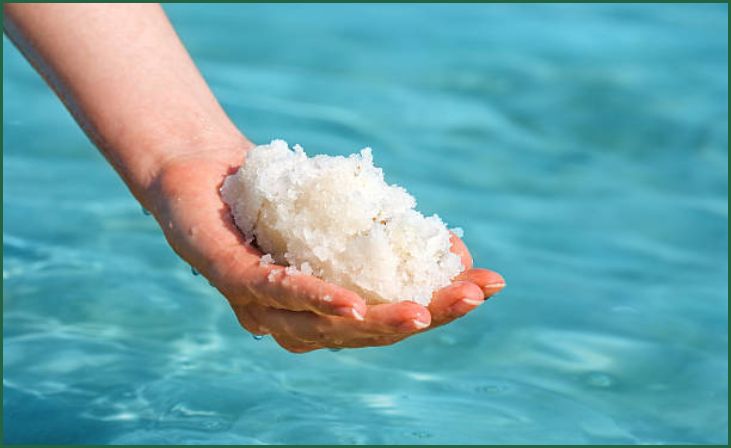
Harvested from the mineral-rich waters of the Dead Sea, this salt is renowned for its therapeutic properties. While not as commonly used in fermentation, Dead Sea salt introduces a distinct mineral flavor to your ferments, providing a touch of uniqueness to your creations. Embrace the opportunity to experiment with this unconventional salt, adding a layer of complexity that sets your ferments apart in both taste and composition.
Also Read: How Long Can You Leave Your Fermented Foods?
Experimenting with these diverse salts can add layers of complexity to your fermented foods, allowing you to tailor the flavor and texture to your preferences. Whether you prefer the purity of Himalayan pink salt or the smokiness of black lava salt, each option brings its own distinctive character to the art of fermentation.
What Is The Best Salt for Fermenting Vegetables?
The best salt for fermenting vegetables is often one that is pure, additive-free, and conducive to supporting the growth of beneficial bacteria while enhancing the overall flavor of the ferment. Here are some popular choices:
1. Kosher Salt
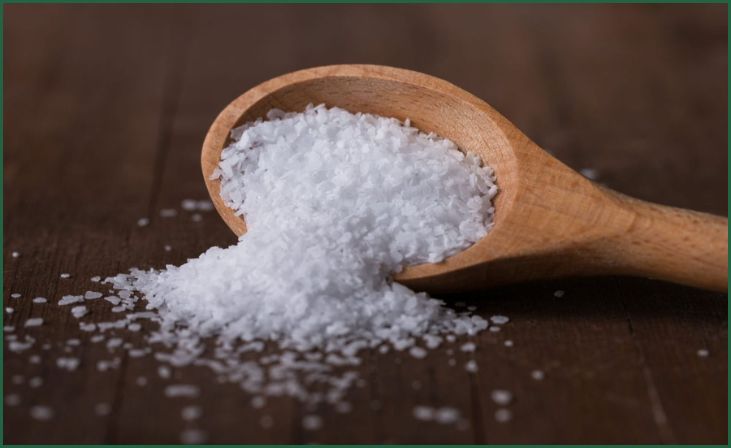
Widely favored in the fermentation community, kosher salt is pure and lacks additives that could interfere with the fermentation process. Its larger crystals make it easy to control the salinity of your brine, and its mild flavor allows the natural taste of vegetables to shine through.
2. Sea Salt (Non-Iodized)
Opt for a high-quality, non-iodized sea salt as it typically contains essential minerals that can enrich the fermenting environment. Look for coarse sea salt without additives for best results.
3. Himalayan Pink Salt
Renowned for its rich mineral content, Himalayan pink salt not only imparts a unique flavor but also provides essential nutrients for the proliferation of beneficial bacteria. Its distinctive pink hue adds an aesthetically pleasing touch to your ferment.
4. Celtic Sea Salt
Harvested from pristine coastal regions, Celtic sea salt is naturally moist and unrefined. Its mineral composition and moisture-retaining properties contribute to a consistent fermentation environment, enhancing the overall quality of your fermented vegetables.
5. Pickling Salt
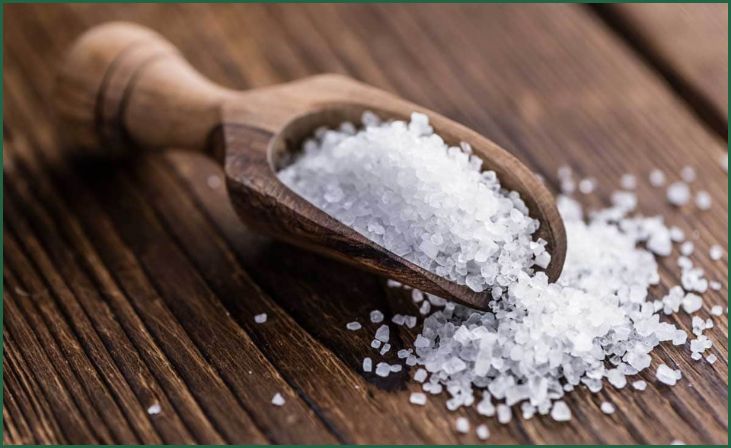
Specifically designed for pickling and fermentation, pickling salt is a fine-grain salt without additives. It dissolves easily in water, ensuring an even distribution of salt in your brine.
Remember to avoid salts with anti-caking agents, iodine, or any other additives, as these can inhibit the growth of beneficial microbes and impact the flavor of your fermented vegetables. The choice between these salts ultimately depends on personal preference, availability, and desired flavor profiles for your fermented creations.
Conclusion
Elevate your fermenting game with the right salt! Experimenting with different salts can open up a world of flavors in your homemade ferments. From traditional sea salt to exotic Himalayan varieties, the choices are vast. Pick the salt that aligns with your taste preferences and watch as your fermented creations become culinary masterpieces. Happy fermenting!
FAQs
What makes a salt suitable for fermenting foods?
What makes a salt suitable for fermenting foods?
The best salts for fermenting foods are those with no additives like iodine or anti-caking agents. Look for pure sea salt or Himalayan salt, as they provide essential minerals and promote the growth of beneficial bacteria during fermentation.
Can I use table salt for fermenting?
Can I use table salt for fermenting?
It’s best to avoid table salt, as it often contains additives that can hinder the fermentation process. Opt for high-quality sea salt or kosher salt for better results in flavor and microbial activity.

